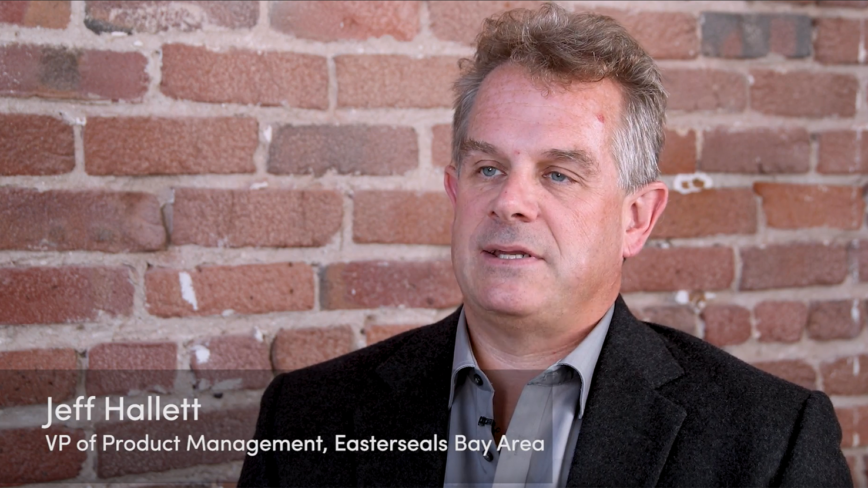Easterseals Northern California is at the forefront of care for people with autism and other developmental disabilities. For over 90 years, Easterseals has provided services to people with disabilities and their families to help them live, learn, work and play to their full potential. Most recently, Easterseals has set out to expand access and affordability of behavioral health services for people with autism and their families.
About
Since 1927, Easterseals Northern California has been leading the way to ensure individuals and families affected by disabilities can live, learn, work and play to their full potential. The organization’s aim is to expand access and affordability for services in the lives of children with disabilities and their families.
Easterseals has been a leader in addressing a sensitive and growing challenge among American children and their families. One in every 59 children in the U.S. is diagnosed with autism, according to the U.S. Center for Disease Control (CDC). In response to the California Autism Insurance Law – SB 946 – passed in 2011, Easterseals partnered with health organizations, leading technology firms and businesses to meet the unprecedented demand for behavioral health service in Northern California.
“Since our services are predominantly home- and community-based, most of our clinicians are mobile. Our behavioral interventionists often go into our clients’ homes and provide our programs directly in the child’s or the adult’s environment,” says Jeff Hallett, vice president of product management at Easterseals Northern California.
Manual Scheduling Created an Obstacle Between Easterseals Northern California and its Clients
As demand for its services grew, the scheduling and operations team at Easterseals felt the acute pain of an organization that had outgrown its previous ways of doing business.
“They would essentially be managing the entire process through extremely large and elaborate spreadsheets, using Microsoft Outlook, and they were on the phone all the time to practitioners. They were constantly having to deal with cancellations and reschedule requests all throughout the workday,” says Hallett.
To help children with disabilities gain the skills necessary for active participation in their communities, Easterseals puts a high priority on delivering customized behavioral health services that are appropriate to each child’s development and needs. That level of customized services translates into highly complex care coordination and care scheduling, without much room for error.
“It was very dynamic, very frustrating, very paper-based, and very difficult for the team who had to do that on a regular basis,” says Hallett of the challenges facing the schedulers at ESBA.
Easterseals Northern California Simplifies Complex Healthcare Scheduling with Skedulo
When it was clear that the legacy processes around care coordination were creating such a heavy burden on its scheduling team, Easterseals Northern California decided to retire its spreadsheets and paper forms. To upgrade its scheduling process for mobile caregivers, the team at Easterseals focused on apps with a managed package on Salesforce, which is how they found Skedulo.
“Skedulo had a clear market leadership and was able to bring the technologies that allowed us to manage that type of very dynamic, mobile workforce,” says Hallett. “The way that you can match people to cases using a variety of skills and matching factors; being able to factor in travel times; being able to keep all that scheduling information electronically live and visible to both the scheduling team and the practitioners delivering the services—it was just a really fantastic fit for what we were trying to do.”
Given the emphasis on personalized care, it is no surprise that Easterseals Northern California had nuanced needs that required special configuration of its scheduling process. Easterseals worked closely with the solution architects and project managers at Skedulo to meet those needs.
“The implementation process at Skedulo was really very straightforward. They helped us better understand and apply the capabilities that they have to the problem set that we had and to develop some customized applications to the scheduling workflow we were trying to implement in our environment,” says Hallett.


